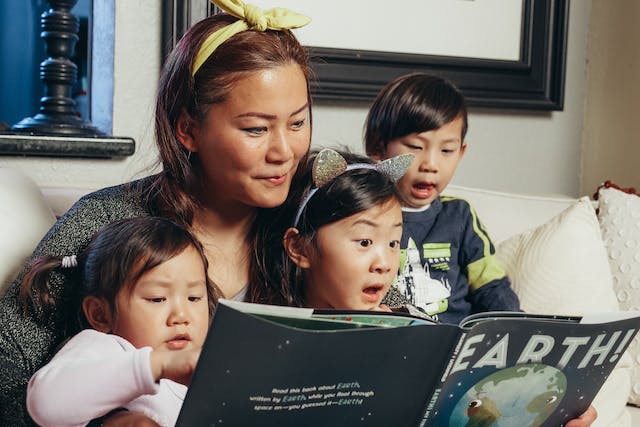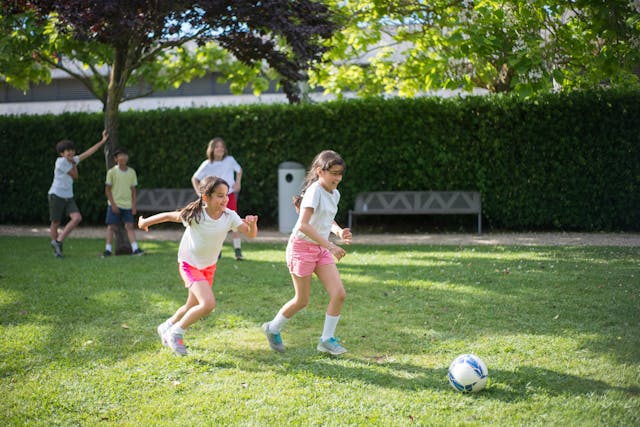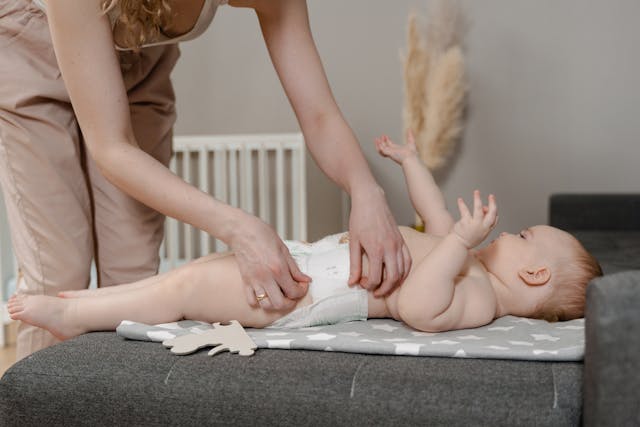Democratic Parenting – Tips for a Resilient Bond with Your Child
Ever heard of a democratic parenting style? It’s like a teamwork dance between parents and kids! So, we’re talking about making decisions together, chatting openly, and setting rules with heart. This style helps your little ones grow into confident leaders. But, you know, it’s not all smooth sailing. Sometimes there’s pushback, time concerns, and finding the right balance. But worry not! I’ve got tips to ease the way.
Summary
From nurturing decision-makers to fostering respect, this blog is a treasure trove. Unravel the secrets of a democratic parenting style, tackle challenges like a pro, and gain practical solutions. Plus, I’ve sprinkled effective tips for implementing this approach seamlessly.
Let’s focus on active listening, leading as examples, picking choices for their age, being a bit flexible, and giving them responsibilities. See, democratic parenting isn’t just a style; it’s about nurturing future leaders. Ready to dive in and empower your kiddos? Let’s get started!

What is Democratic Parenting?
Democratic Parenting is an approach where joint decision-making is practised through mutual respect, autonomy and responsibility. Every member of the family participates in this parenting style and puts their point forward when making family decisions. It strikes a balance between boundaries, care and independence for the entire family’s welfare.
The parenting style is like a dance, where parents and children move together, respecting each other’s steps. Okay, I am being a little gimmicky here!
But the point is that the style assists in collaboration, communication, and connection. The style will help you overcome a child’s unloved syndrome. Every move in this style is a step toward building a solid parent-child relationship.
Why Does It Matter?
In a study involving 231 children and their parents, researchers utilized the Parental Attitude Determination Survey and the Social Skills Evaluation Scale (for 4-6-year-olds) as data collection tools. The findings demonstrated a positive and significant impact of democratic parental styles on children’s social skills, while overprotective parental styles were associated with a negative and significant effect.
Critical Components of Democratic Parenting
The Art of Communication
Communication is an essential component in every kind and style of parenting. You, as a parent, need to practice talking, listening, and talking some more. The cycle continues as democratic parenting thrives on open communication. The parenting style is a chance for you to encourage your little one to share their thoughts and feelings.
Decisions, Decisions
Tell your kids to participate when making decisions, such as creating a grocery list or talking about something your child got in trouble with in school. Ask them to put on those decision-making hats together! The best democratic parenting approach is to Involve your child in age-appropriate choices.
Boundaries with Heart
Rules are like the rhythm of your relationship; you should set them, but do so with empathy and explanation. Refrain from dominating and being stagnant with your decision. Help them understand the ‘why’ behind the rules; they’re more likely to follow them willingly.

Benefits of Democratic Parenting
Little Decision-Makers in the Making
Have you ever noticed your child beam with pride after making a decision? That’s what I am talking about. The magic of Democratic Parenting! It helps them become confident decision-makers, paving the way for future leadership.
Talk Like a Pro
Do you want your child to have excellent communication skills? Democratic Parenting is the secret sauce. It is important to encourage open dialogue as you’re setting the stage for your little ones to express themselves confidently.
Respect Rules the Roost
In the world of Democratic Parenting, respect isn’t just a word – it’s a lifestyle. Your child learns to respect not just you but their peers, teachers, and anyone they encounter in life. Moreover, democratic parenting isn’t just beneficial for kids; it also proves advantageous for parents, as sensitive parenting behaviour and democratic parenting beliefs showed reciprocal associations between spouses over time.
Democratic Parenting Style – Challenges and Solutions

By Democratic Parenting, you emphasize collaboration and open communication. It is a transformative approach to raising confident, independent children. Yet, like any journey, you will go through some challenges. Together, let’s unravel these challenges and equip you with practical solutions, making your Democratic Parenting adventure as smooth as possible.
Challenge: Resistance and Disagreements
By using a democratic style, your child may express resistance or disagreements. This is a natural part of their growing independence, depending on their age. Addressing disagreements and respecting them requires finesse.
Solution: I know it can get on your nerves, especially when you have too much going on in life. But first, take a deep breath, encourage your child to express their thoughts, and actively listen without judgment.
Explain your perspective calmly and try to understand their perspective as well. The practice will help ensure how your child feels. The strategy not only resolves immediate conflicts but teaches valuable communication skills.
Challenge: Time and Effort Investment
Parenting requires lots of patience, effort and ongoing internal conflicts. Democratic Parenting can be a handful for you as it is perceived to be time-consuming and requires patience and effort that might seem overwhelming in our fast-paced lives.
Solution: look at it as an investment. Your mindset is everything. Consider the time spent on democratic decision-making as an investment in your child’s long-term development. The skills they gain – critical thinking, negotiation, and empathy – are tools that will serve them well throughout life.
Challenge: Consistency Struggles
Everything requires consistency and practice; the same is true with democratic Parenting. Maintaining consistency in democratic Parenting can be challenging. You need to ensure that rules and expectations remain the same and continuously put in conscious effort.
Solution: the best solution is to establish clear guidelines. You can create simple rules that align with your family values. These guidelines serve as the cornerstone of consistency. When everyone understands the expectations, it becomes easier to maintain a consistent approach. You need to create clear expectations and not assume that they know it. As parents, create stability and predictability for your child.
Challenge: Balancing Freedom and Boundaries
This is one of the most common problems, particularly when they start growing up and doing things independently. This is the best time to practice Democratic Parenting. The style emphasizes freedom within limits, but finding the right balance can be tricky.
Solution: the best solution is to communicate boundaries with empathy. Tell your children the possible consequences and the effects of it. Please provide them with rules, or even better, formulate rules with them. Let them decide the new unexplored places in Asia they want to visit. The strategy will help you foster a sense of responsibility while maintaining a supportive environment.
In the tapestry of Democratic Parenting, challenges are threads woven into the journey. By approaching resistance with open communication, viewing time investment as a gift to your child, establishing clear guidelines for consistency, and balancing freedom with boundaries, you not only overcome challenges but foster a nurturing and empowering parenting style.
Tips for Implementing Effective Democratic Parenting
1. Listen Actively
It’s not just about hearing; the focus is on listening. Show your child their thoughts are important to you and actively engage in conversations. An effect that gives way is to repeat back what they say to let them know you’re tuned in.
2. Lead by Example
Kids replicate you. Remember the phrase, ” Actions speak louder than words”. This fits well for Parenting as well. Kids are the best copycats! Modelling democratic behaviour and getting their opinions would enhance their ability to listen. Let them see how you practice cooperation and compromise to create a harmonious dance between parents and children.
3. Age-Appropriate Choices
The range of decision-making choices is vast. You can build different opportunities for children to decide. What should you cook for dinner and tell them the ingredients? A day-out plan on where to visit or the vacation budget.
There are many life challenges you go through that you can involve your kids in. You need to tailor choices to your child’s age and let them gradually waltz into the world of responsibility.
4. Embrace Flexibility
When practising democratic Parenting, make flexibility your best partner. Life is unpredictable, and so are children, and you need to embrace this fact. Accept differences with an open mind and be willing to adjust your approach. Flexibility nurtures resilience, teaching them that challenges are opportunities to grow and learn.
5. Foster Independence through Responsibilities
Another tip is to encourage your child’s independence by assigning age-appropriate responsibilities. It can be small tasks like setting the table, choosing their clothes, or helping with simple chores. These tasks instil a sense of capability and accountability. You can involve them in the daily rhythms of the household; you not only lighten their load but also empower them with a foundation of life skills.
Takeaways
And there you have it, that’s all about Democratic Parenting. The parenting style is relevant and crucial to developing your child to be a global leader. It’s not just a parenting style; it’s a celebration of connection, communication, and collaboration.
So, put on that democratic hat and lead your child into an environment that builds not just great parents and children. Let your child lead the world of tomorrow. Happy Parenting!









